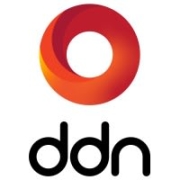Network Attached Storage (NAS) offers centralized data storage accessible over a network, providing a convenient solution for file sharing and data management across multiple users and devices.
NAS systems provide an efficient means of storing, protecting, and accessing data in home or office environments. They act as dedicated data hubs, enhancing collaboration with shared access and improving security through built-in data protection features. Suitable for both personal and business use, NAS devices support various applications from simple file storage to complete media servers.
What are the critical features of NAS?In industries such as media production and healthcare, NAS solutions are implemented to manage large data workloads efficiently. Media companies use NAS for storing and streaming vast amounts of digital content, while healthcare organizations rely on reliable NAS systems for safeguarding sensitive patient records. These processes often require robust data security and high availability, attributes inherently provided by NAS.
NAS solutions help organizations simplify data management by offering centralized storage that is both scalable and secure. Providing rapid access to data and the ability to share files seamlessly enhances operational efficiency and supports business growth.
| Product | Market Share (%) |
|---|---|
| Dell PowerScale (Isilon) | 15.4% |
| NetApp FAS Series | 10.5% |
| Dell PowerStore | 9.5% |
| Other | 64.6% |







































SAN (storage area network) and NAS are both network-based storage solutions.
A SAN is an array of disks which are attached to the server, creating a device that can be accessed similar to a hard drive. A SAN stores data at the block level, while NAS data is accessed as files. A SAN operates as a disk and exists in its own separate network of storage devices, while NAS operates as a file server.
NAS handles unstructured data, such as audio, video, websites, and text files. SANs are designed mainly for block storage inside databases, also known as structured data.
A NAS is very useful when multiple devices need to easily and safely access the same set of files. These files can be documents, photos, music, or video files. Whenever users collaborate with each other with shared files, it is recommended to use a NAS.
NAS solutions streamline data management by providing centralized storage accessible over a network. This allows you to easily manage, store, and share files across multiple devices and locations. The centralized nature of NAS facilitates enhanced data organization and retrieval efficiency, leading to reduced redundancy and simplified backup processes.
What are the key security features of NAS?Modern NAS devices offer a variety of security features designed to protect your data. These typically include encryption for stored data, secure user authentication methods, access control mechanisms, and integrated firewalls. Additionally, many NAS solutions offer regular firmware updates to address vulnerabilities and ensure the protection of sensitive information.
How does NAS support data backup and recovery?NAS systems provide robust options for data backup and recovery by supporting various backup protocols. They allow you to schedule automatic backups, ensuring that data is consistently preserved. Some NAS devices also offer snapshot capabilities, enabling you to quickly restore data to a previous state in case of accidental deletion or corruption.
Can NAS enhance collaboration in a hybrid work environment?NAS facilitates improved collaboration in hybrid work environments by providing shared access to files and documents irrespective of users' locations. This capability ensures that team members can work simultaneously on shared projects with real-time updates. NAS solutions often integrate with cloud services, further enhancing connectivity and collaboration among remote teams.
What should you consider when choosing a NAS for a small business?When selecting a NAS for a small business, consider factors like storage capacity, user support, and ease of use. It's crucial to assess the scalability of the solution to ensure it can grow with your business needs. Additionally, check for features like data redundancy, security measures, and compatibility with existing infrastructure to make an informed decision.